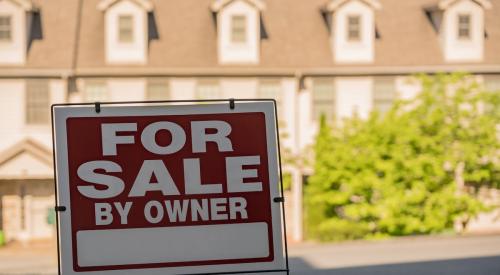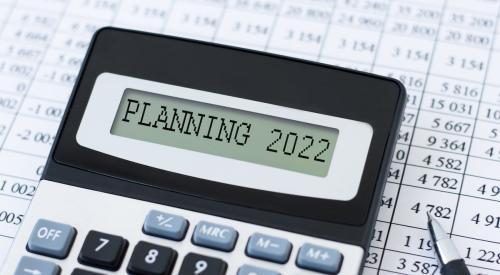Despite hurricanes, floods, and ongoing constraints of labor, land, and the cost of materials, home builders soldiered on through 2017, maintaining numbers similar to those of the year before. But though economists expected a 6 percent decline in October, new-home sales unexpectedly rose by 6.2 percent. That jump resulted in a seasonally adjusted annual rate of 685,000 new-home sales, an 18.7 percent increase year over year, and the highest level of sales in 10 years. Year-end numbers may dip when the November and December figures are factored in, and the annual total may not look quite as rosy, but it’s clear that 2017 will be strong (Image: stevepb via Pixabay).
Industry analysts are also fairly optimistic about 2018. Surveys such as the University of Michigan’s Consumer Sentiment Index show that buyers’ attitudes toward current economic conditions and expectations are quite favorable. Mortgage rates are predicted to rise somewhat, ranging from a low of 4.3 to nearly 5 percent, but housing price growth is expected to slow to about 4 percent. Fannie Mae and Freddie Mac have announced they will raise their conforming loan limits by 6.8 percent in 2018, in response to a similar increase in home prices over the preceding year. Mortgage lenders, which have been easing lending standards, slightly, over the last three years, plan to continue on that path. Taking all of this information into account, prognosticators such as NAHB and Fannie Mae are forecasting that the new-home sales total for 2018 will come in at around an average of 655,000.
In addition to predictions about the numbers, economists and other analysts are peering ahead to see what the general housing landscape will look like in 2018. Inventory shortages are expected to continue through 2018, though some say there may be some easing over the course of the year, setting up 2019 as a year when we will begin to see some sales growth increases. There were 12 percent fewer homes for sale in September 2017 than there were the year before, according to a Zillow market report, so there will be quite a bit of ground to make up. Many builders will likely be turning their attention to the increasing demand of entry-level buyers; there are more of them than in any other cohort and there are fewer homes on the market at starter home prices.
Those entry-level and first-time buyers—mainly Millennials who are moving into their 30s—may make up 43 percent of all buyers by the end of 2018, up from an estimated 40 percent in 2017, according to Realtor.com. And, as they are expected to be starting families and will want more space, many will be looking to the suburbs for homes at prices they will be able to afford. The holy grail of home building, of course, is finding a scalable solution to providing lower-cost homes to this ever-growing segment of potential buyers.
The headwinds against finding that solution are pretty powerful. Costs of every sort continue to make new homes more and more expensive every year. And, depending on where tax reform ends up, there may be fewer incentives to encourage buying over renting, especially when it comes to single-family homes. Zillow reports that home sales, both new and existing, have been curtailed by the growth of single-family rentals by approximately 270,000 units per year, with about 121,000 of them going to the most affordable third of
the market.
For once, their parents are not helping the Millennials out, either, as recent surveys from Trulia and Realtor.com report that only a small percentage of Boomers say they’re planning to sell their homes this year. This will depress existing home inventory, but then again, it may present an opportunity for additional new-home sales.













